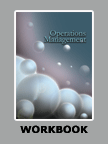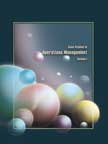Sundaram Clayton: Winning the Deming Prize
|
|
ICMR HOME | Case Studies Collection
Case Details:
Case Code : OPER010
Case Length : 11 Pages
Period : 1998 - 2002
Organization : Sundaram Clayton
Pub Date : 2002
Teaching Note : Available
Countries : India
Industry : Automobile Components
To download Sundaram Clayton: Winning the Deming Prize case study
(Case Code: OPER010) click on the button below, and select the case from the list of available cases:

Price:
For delivery in electronic format: Rs. 300;
For delivery through courier (within India): Rs. 300 +Shipping & Handling Charges extra
» Operations Case Studies
» Case Studies Collection
» ICMR HOME
» View Detailed Pricing Info
» How To Order This Case
» Business Case Studies
» Case Studies by Area
» Case Studies by Industry
» Case Studies by Company 
Please note:
This case study was compiled from published sources, and is intended to be used as a basis for class discussion. It is not intended to illustrate either effective or ineffective handling of a management situation. Nor is it a primary information source.
Chat with us

Please leave your feedback

|
|




<< Previous
Excerpts
SCL'S Deming Prize Journey
|
SCL had decided to apply for the Deming Prize in the early 1990s itself. This
decision was the result of management's belief in the total quality control
efforts that had started in 1979, after Venu Srinivasan (Srinivasan) became the
CEO (1977). A SWOT analysis conducted by Srinivasan in 1997 revealed that though
the company had a 90% share of the air-brake systems market in India, it was not
competent enough to deliver world-class quality products. This analysis prompted
the company to seek excellence through total quality control/management.
As a part of this initiative, SCL managers were introduced to the concept of
Total Quality Control (TQC) and exposed to the quality control practices of
world's leading companies.
|

|
The managers were also trained in modern manufacturing techniques. By the
mid-1980s, the TQC culture was well established at SCL. Famous Japanese
quality control experts like Yoshio Kondo and Washio trained managers and
employees extensively in TQC. The company also introduced the concept of
quality circles. To remain focused on quality control and to keep the
employees interested in quality control practices, external targets such as
winning national quality awards were set, following which the company won
the Quality Circle Award of the Confederation of Indian Industry (CII) in
1989 and the Quality Circle Federation of India awards successively for the
next few years...
|
|
After Winning the Prize
The defect rate in the manufacturing process at SCL decreased
substantially and customer returns came down as a result of these
quality control initiatives. New-product development time was reduced
from 24-to-30 months to12-to-14 months. The turnover per employee
increased by an estimated 18% annually while the gross value addition by
every employee increased by 12% per annum.
The quality practices in the company also reflected in its financial
performance. Between 1992 and 1997, sales grew at an annual rate of 35%
while its net profits grew at an annual rate of 83%... |
Exhibits
Exhibit I: SCL - Profit & Loss Statements
Exhibit II: Dr. Deming's maxims
Exhibit III: Various TQC Tools
Exhibit IV: Reasons Why TQM Fails
|
|










